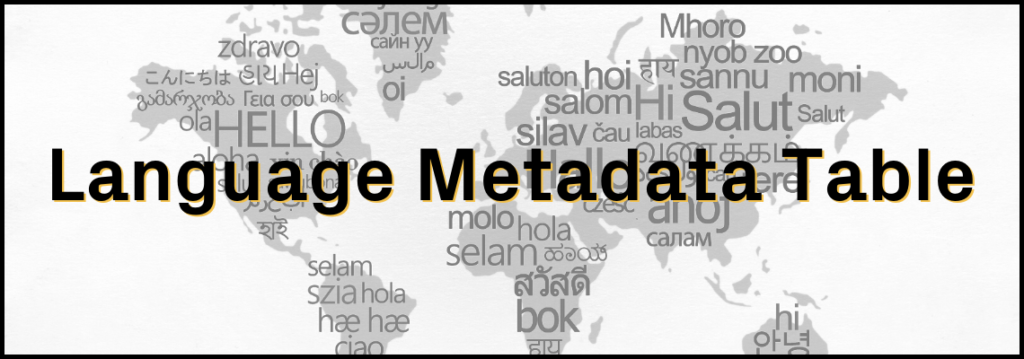M+E Daily

MESA Gives LMT Update, Discloses What’s Coming Next
Story Highlights
MESA provided an update on the current state of the Language Metadata Table (LMT) and pointed out what’s coming next, on Feb. 29 during the ITS Localisation event in London.
It’s 2024 and the media and entertainment industry is still grappling with which language codes to apply for content: captioning, dubbing, subtitling, etc.
The ideal solution would allow for the content creators and those who receive the content to apply and receive codes that mean the same language on all sides. However, that hasn’t happened consistently.
Enter LMT, a set of industry vetted codes that includes a technology solution to ensure compliance.
During the ITS session “Languages and Localisation: Simplified,” Yonah Levenson, co-chair of the LMT Working Group at MESA, said: “What I’m hearing through all these different sessions is that a lot of people are struggling with the same problem all the way through. There’s the internal code [and] there’s what might be required by your distributor in all these different places.”
Therefore, the intent of LMT was to “knock all that out and have one set of standards across the enterprise,” she said.
 There are, meanwhile, several “different places where LMT can be leveraged,” she pointed out to attendees.
There are, meanwhile, several “different places where LMT can be leveraged,” she pointed out to attendees.
LMT now has an application programming interface (API) validation tool and “we have established a set of truth,” she said: “There’s group code, so like Spanish, French, German, Italian, etc., English and then the codes themselves. So that’s the pattern that’s in there.”
By having that source of truth that is the LMT, “which we keep in a taxonomy tool database from Synaptica, then we can keep on having all those codes, get it in there, that gets published, [and] the API “pulls it out and checks again to see is the code valid or not,” she explained.
“Again, our whole intent there is to make sure there is a truth out there,” she said. “The other thing is, if you think about one of the earlier slides with all the different participants that we have in there, we have vendors, we have content creators, we have subject matter experts in general, it’s not me and my other co-chairs sitting up there saying, ‘Oh, let’s call it this.’ Everything is voted on. We send it out for … written approval [within] usually five business days.”
She went on to tell attendees: “One of the things that we’re now working on is establishing some better business rules to make sure that things really stay compliant.”
Also planned is a change to some of the table’s column names “to make it clear, primary and then alternate,” she added.
ITS Localisation was presented by MESA in association with the Content Localisation Council and Smart Content Council, and sponsored by Dubformer, Iyuno, AppTek, EIDR, Blu Digital Group, OOONA, Papercup, and Deluxe.









